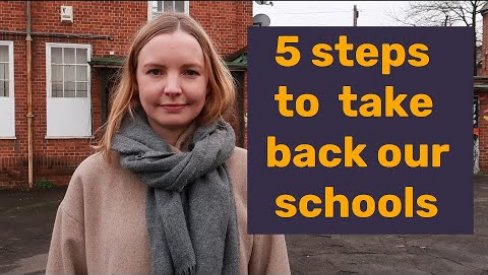
10 February 2021
The scientific evidence is clear. Access to sufficient amounts of nutritious food is crucial for the physical and intellectual health and growth of children. No child should go a day without a healthy meal.
Because of this, the provision of schools meals is extremely important.
The free school meals furore
In January, Twitter user Roadside Mum drew attention to just how measly some of the food packages given to children on free school meals during Covid have been. After mounting public outrage, one of the companies contracted to deliver these packages - Chartwells - took the flack. The Prime Minister himself was then forced to admit, “we're aware of those images circulating on social media, and it is clear that the contents of those food parcels are completely unacceptable”.
At the centre of the scandal was private profit. Claims vary, but Chartwells was paid somewhere between £10.50 and £15 per pupil per week to provide the parcels that circulated on social media. With this, the company stood to make profits if it could meet the government’s stated requirements for as little as cost as possible. If the company could meet the requirements for £5, it could pocket the rest of the cash as profit.
This particular furore was over the delivery of food parcels to families under the government’s makeshift effort to feed children while schools were closed as a result of lockdown.
The school meals scandal goes well beyond this though. In many ways, the more important question around school meals provision is in relation to the meals children are fed while school is in session - including free school meals.
School meals: some facts
Legally, the duty to provide meals at schools sits, not with councils, but with schools, and school headteachers more specifically. Schools can provide this service as they please, provided it meets the standards outlined in the government's school meals guidelines.
However, there are four kinds of schools when it comes to the provision of school meals. There are (i) schools that run in-house catering services, (ii) schools that contract out the service to the local council's inhouse catering service, (iii) schools that contract out the service to a private company or non-profit, and (iv) schools that receive the service from a private company or non-profit through a contract signed by the local council.
There are no up-to-date official numbers for how many schools use each of these systems, according to the government's response to a Freedom of Information request. But based on a government survey conducted in 2013-2014, 28% of schools contract the service with a private company, 12% of schools have an in-house service and 60% of schools contract the service with their local authority (this includes councils like Brighton & Hove and Newport that outsource the service). A 2018 survey by the Association of Public Service Excellence found that in 5% of councils all catering - including school meals - is contracted out and in 13% of councils, some catering is contracted out.
The case against privatisation in the delivery of school meals:
Privatisation has consistently been shown to have catastrophic consequences in our public services. The primary goal of private companies is to make profit, rather than to deliver a quality, caring, people-centred service. As we saw with the litany of scandals in recent years, often one of the central ways private companies squeeze profit out of our services is to find ways to reduce costs. Either this comes through undermining the rights and wages of workers, or it comes from cutting corners and lowering standards on service delivery.
This applies in school meals provision as much as any other service. For private companies delivering school meals there are two ways to cream off profits. First, they can hire as few staff as possible, on bad terms and conditions and with terrible pay. Second, they can use as little of the money they get to provide the service to meet the very basic nutritional and other contractual standards. Staff not feeling sufficiently compensated side-by-side with managers paid to find ways to skimp on the budget is a recipe for a substandard service.
It is also a recipe for missing the entire point of school meals in the first place: the wellbeing of the children. Private companies will never put that wellbeing first, instead chasing new ways to strengthen their bottom line.
By contrast, in-house catering services are able to take an entirely different focus. Their entire goal is to ensure that school children are given healthy, nutritious and tasty meals. There is a clear and direct line of accountability if something goes wrong. Staff are paid better and are more likely to be unionised.
The benefits to childern are clear. But in-house provision also benefits the public purse. According to the available evidence, in-house council delivery of school meals is cheaper for schools than contracting with private companies. According to the government survey discussed above, on average, council in-house delivery of the service in 2013-2014 cost schools £2.01 per meal, whereas private companies charged schools £2.20 per meal on average. Scaled up to every child in every school in a council area, the savings are huge.
Where do we go from here?
Public anger, combined with the campaigning zeal of the likes of Marcus Rashford has forced the government to acknowledge that its lockdown free school meal provision is wholly inadequate. Now, we need them - and others in positions of power - to take real action to end the school meals scandal as a whole.
Headteachers should take the decision to take profit out of the equation entirely, ending the outsourcing of school meals. And councils that currently don't have in-house catering services for school meals must explore creating one and giving local schools the option of a service free from privatisation.
We know how important school meals are to our children's future. We can't let the scandal to continue. Now is the time to kick the profiteers out of the system and bring school meals across the country into public hands.








Comments
Graham Eaton replied on Permalink
It’s about time we knew all about these privatisations in our public services!
It’s a scandal that they are outsourced!
It should be against the law!
Roy Hesketh replied on Permalink
That's how it used to be. Until privatisation came along. Everyone who could jumped on the band wagon. In the case of school provisions including meals, it was cut up into pieces. Some for healthy nutrition and non profit, some for a bit of both and the rest for profit. It is scandalous. It's high time a healthy diet was put first.
Sylvie replied on Permalink
Please no more privatisation.All services need to be brought in to public ownership to enable investment to improve services to us the public.
Add new comment